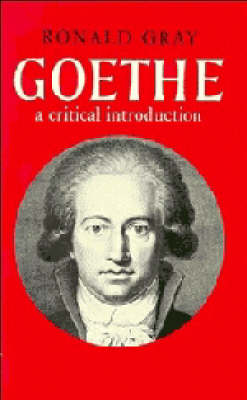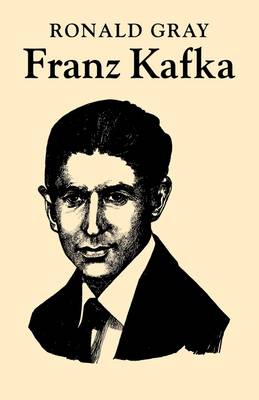Major European Authors
3 total works
This is a concise survey and criticism of Goethe's work, for the general reader and the student. It is intended as a useful first book from which the reader can proceed to more specialised studies. Here Goethe's work is seen as a whole, and from the point of view of literary criticism. The first chapter summarises Goethe's life. The other chapter discuss the works, singly and in groups. Much attention is given to the poems; and there are two long chapters on Faust. Werther, Wilhelm Meister, Elective Affinities, and the Divan are given a chapter each; so are the dramatic works, the autobiographical writings, and the scientific work. A refreshing aspect of the book is that while Dr Gray takes account of earlier criticism he also seeks to see Goethe's work entirely afresh, and to reappraise it; by questioning the value of some works, he enhances the valuation of others. Quotation is in German, but English translations are given in footnotes. There is a useful comparative table of biographical dates, which shows what was happening, politically and culturally, in Europe while Goethe lived. There are references at the end of the book, a select bibliography and an index. The book can be used in conjunction with Dr Gray's selection of the poems. The two books together are the best possible introduction to one the greatest European men of letters.
This 1973 text provides a critical introduction to the writings of Franz Kafka. Within it Ronald Gray surveys the novels and short stories, and glances also at the religious or confessional writings. He presents a persuasive and coherent account of Kafka's personal and artistic development and its meaning and value for us. Dr Gray argues that the early short stories are most finished and controlled; here Kafka recognised and managed to find a form exactly fitting his own condition, and the writing is less compulsive and obsessional than it became later. Dr Gray quotes extensively, translating specifically for the purpose. He writes for all whose who read Kafka, especially the many who read him in translation and would like a helpful and shrewd guide to understanding. Kafka's work hauntingly expresses one whole area of the modern mind - its anguish, dissociation and guilt - and this sane and sympathetic book puts him into a humane perspective.
In this 1976 introduction to Brecht's theatre and theory, Ronald Gray explores the dramatist's interacting roles as a committed Marxist seeking to influence audiences and as one of the most innovative craftsmen ever to work in the theatre. Dr Gray traces the development of Brecht's dramatic work in the context of his life and time and discussed its significance, devoting chapters to reappraisals of the major plays. Particular attention is paid to Brecht's dramatic theories and their relationship to Hegelian and Marxist philosophy, to the tradition of political theatre in Germany in the nineteenth and twentieth centuries and to the influence Brecht had on English and American post-war drama. There are also detailed accounts of how many of the plays appeared in Brecht's own productions, and frequent references to actual performances in widely differing theatrical styles.


